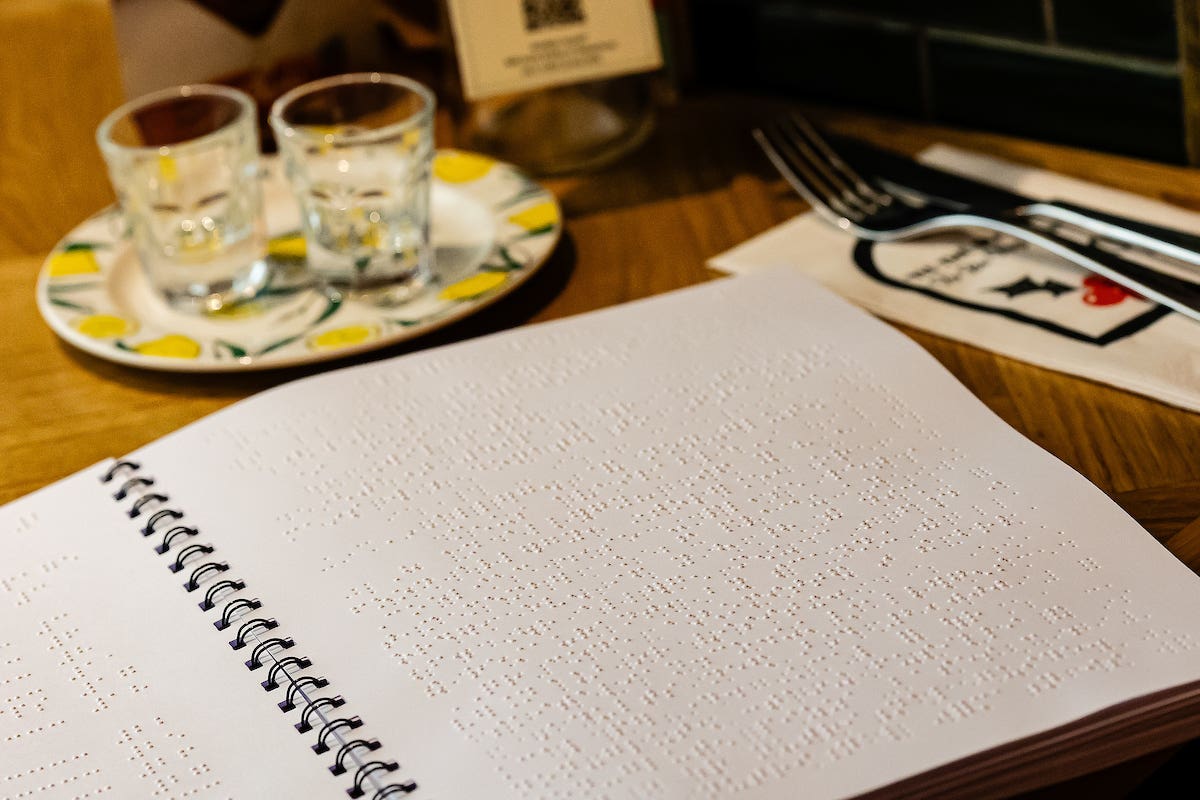Braille menus introduced as ASK Italian aims to make restaurants more inclusive
The chain has rolled out braille menus at its 66 restaurants across the UK to help customers who are blind or visually impaired.

Your support helps us to tell the story
From reproductive rights to climate change to Big Tech, The Independent is on the ground when the story is developing. Whether it's investigating the financials of Elon Musk's pro-Trump PAC or producing our latest documentary, 'The A Word', which shines a light on the American women fighting for reproductive rights, we know how important it is to parse out the facts from the messaging.
At such a critical moment in US history, we need reporters on the ground. Your donation allows us to keep sending journalists to speak to both sides of the story.
The Independent is trusted by Americans across the entire political spectrum. And unlike many other quality news outlets, we choose not to lock Americans out of our reporting and analysis with paywalls. We believe quality journalism should be available to everyone, paid for by those who can afford it.
Your support makes all the difference.Braille menus to help blind and partially sighted customers have been introduced by ASK Italian as part of an initiative to make its restaurants more welcoming to everyone.
From January, ASK will also add braille signage on toilet doors and roll out British Sign Language (BSL) training courses for front of house staff.
The initiatives come as a survey for the chain, which has 66 restaurants across the UK, found more than half (57%) of people with sight, hearing or speech problems have felt anxious about visiting a restaurant while four in 10 (41%) said they have felt nervous.
One in five (21%) said they have felt intimidated and three-quarters (76%) said they had been put off visiting a restaurant in the past five years.
On average, those questioned had missed out on three celebratory occasions due to their disability.
To mark the launch of braille menus, and as part of its annual local artist collaboration to decorate its venues for Christmas, ASK partnered with blind artist Clarke Reynolds, who created an artwork for the Park Street restaurant in central London which includes a snowflake made from the braille alphabet and part of the festive menu.
Mr Reynolds lost sight in his right eye aged six and was diagnosed in his early 30s with retinitis pigmentosa, a genetic condition which causes vision loss over time.
“As an artist, I’m on a mission to make braille as powerful as letters in the visual world, and normalise blindness and sight loss using our universal language,” he said.
“I’m overjoyed to be creating the first braille window display in the UK and I hope it helps in educating the wider public around how important it is to those in the visually impaired community.
“Having the opportunity to showcase the beauty of braille at ASK Italian is amazing, and I hope that it brings the topic of sight loss to the forefront of people’s mind and get a deeper understanding of the struggles of inclusivity in a world made for those who can see.”
Braille, developed by Louis Braille in the 1820s, enables blind and visually impaired people to read and write by touch, using combinations of raised dots representing the alphabet, words, punctuation and numbers.
ASK’s marketing director Corinne Prior said it was “heartbreaking” that so many people with sight problems found it challenging to enjoy a meal out.
“We’re committed to making our restaurants a welcoming and inclusive place for everyone, and are always looking for ways to make our restaurants more accessible.”
ASK is inviting suggestions on how to make its restaurants more inclusive and accessible as part of its Menu for Everyone initiative. People can share comments on https://www.instagram.com/askitalian/ or by emailing info@askitalian.co.uk.
– Censuswide surveyed 1,000 UK adults who are deaf/hard of hearing, blind/visually impaired and experience speech difficulties.